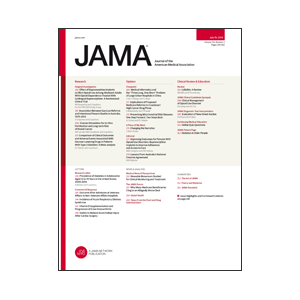Home 2010
Yearly Archives: 2010
Patient-Physician Compatibility Increases Odds of Following Doctor’s Orders
A new study suggests that when doctor and patient attitudes on the issue match up, patients do a better job of taking their medications.
Scientists Discover a Gene that Ties Stress to Obesity and Diabetes
The constant stress that many are exposed to in our modern society may be taking a heavy toll: Anxiety disorders and depression, as well as metabolic (substance exchange) disorders, including obesity, type 2 diabetes and arteriosclerosis, have all been linked to stress.
Discovery Could Help Diabetics and Others With Slow-To-Heal Wounds
A new discovery about the wound-healing process could lead to better treatments for diabetics and other patients who have wounds that are slow to heal.
Grapes Reduce Risk Factors for Heart Disease and Diabetes, Study Shows
Findings show grape consumption lowered blood pressure, improved heart function and reduced other risk factors for heart disease and metabolic syndrome.
Vitamin B Therapy Dangerous for Millions of Diabetics with Kidney Disease
The use of vitamin B to stop kidney damage in people with diabetes needs a closer look, and those with kidney damage now taking high vitamin B doses, should stop.
Artificial Pancreas Successfully Controls Blood Sugar More Than 24 Hours
An artificial pancreas system that closely mimics the body's blood sugar control mechanism was able to maintain near-normal glucose levels without causing hypoglycemia in a small group of patients.
Diet Alone Will Not Likely Lead to Significant Weight Loss
Newly-published research demonstrates that simply reducing caloric intake is not enough to promote significant weight loss.
Researchers Invent Zinc-Stapled Insulin to Massively Reduce Insulin-Related Cancer Risk
Studies have demonstrated that obesity and excess insulin - whether naturally produced by the body or injected in synthetic form - are associated with an increased incidence of some common cancers.
Researchers Use Novel Nanoparticle Vaccine to Cure Type 1 Diabetes
Using a sophisticated nanotechnology-based "vaccine," researchers were able to successfully cure mice with type 1 diabetes and slow the onset of the disease in mice at risk for the disease.
Parents Keep Diabetic Teens on Track
Teenagers and tweenagers with type 1 diabetes have more trouble sticking to their treatment plan - thus raising their risk of blindness, kidney failure and heart disease - if their parents become increasingly lax about monitoring the child's treatment, or if the mother-child relationship is poor.
Gene Provides a Link Between Lower Birth Weight and Type 2 Diabetes
New research uncovers two genetic regions that influence birth weight. One of the regions is also associated with type 2 diabetes, which helps to explain why small babies have higher rates of diabetes in later life.
Researchers Show Some Cells in Pancreas Can Spontaneously Change into Insulin-Producing Cells
Alpha cells in the pancreas, which do not produce insulin, can convert into insulin-producing beta cells, advancing the prospect of regenerating beta cells as a cure for type 1 diabetes.
JDRF Funded Researchers Test Topical Drug to Treat Diabetic Macular Edema
Early-stage human clinical trials showed that a new topical drug was safe and had biological effects in a type of diabetic eye disease, and may offer researchers a new approach to prevent and treat diabetic macular edema.
Difficulty Trusting and Reaching Out to Others May Shorten Diabetes Patients’ Lives
Self-reliant diabetes patients had a 33 percent higher mortality rate during a 5-year study, compared to diabetes patients who interacted easily with others and sought support.
Study: Leptin Therapy Shows Promise For Type 1 Diabetes
Using leptin alone in place of standard insulin therapy shows promise in abating symptoms of type 1 diabetes, UT Southwestern Medical Center researchers report.
Study Says Diabetes at Epidemic Proportions in China
A large population-based study of diabetes in China conducted by investigators from Tulane University and their colleagues in China has concluded that the disease has reached epidemic proportions in the adult population of China.






